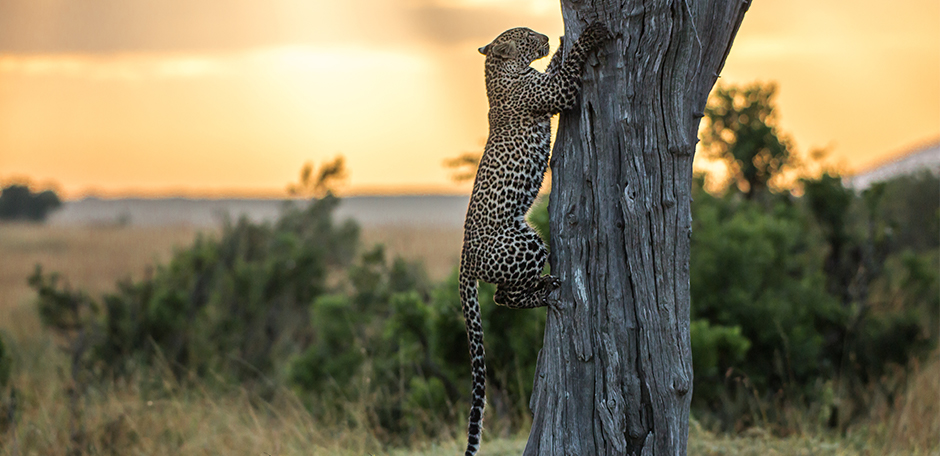It is no secret that Google is the most widely used search engine in the world. This gives Google the benefit of being the first to identify search trends, globally, for any particular topic. We decided to take a closer look at frequently asked questions in Google’s trends, regarding travel in Africa, so that we could do what we love to do: use our extensive knowledge and first-hand experience to assist people in finding the answers to their African safari & travel questions.Africa is a magical place that everyone should experience at least once in their lives - we believe this wholeheartedly. This is why we do what we do and why we’re passionate about assisting you in planning every aspect of your journey.We know that the planning phase provokes several questions; with safety, things to do, the best time to visit and destination information at the forefront. These questions are complex and the answers simply aren’t one-liners so in hope of creating a better understanding and love for Africa, we have endeavoured to answer these honestly and accurately. Please note that at the end of the article we give a summary of the answers to the frequently asked questions about traveling in Africa.
FAQ 1: Is it Safe to Travel in Africa?

Africa is definitely safe to travel to, however, like any place in the world, you give yourself the best chance at a seamless trip by being mindful of the differences between different countries and areas in Africa. Safari destinations are the least affected though, lodges are often tucked away in private reserves which are accessible only to guests and staff. The main cities are potential areas for transgression, however, this is highly unlikely if you adhere to basic safety precautions and exercise vigilance in your surroundings. Most travelers generally only pass through the cities on their way to safari destinations located in the North, East and West Africa; often never needing to leave the airport. Many cities in Southern Africa, particularly Cape Town, are loved by tourists and should not be missed. Our only guideline is to shown caution when venturing out alone and to safeguard valuable belongings. All hotels and lodges provide safes for guests to use.
FAQ 2: What Else is there to Do in Africa Besides a Safari?

Africa is a world-renowned as the ultimate safari destination with several diverse game reserves teeming with wildlife and the experience of open vehicle game drives that are led by highly skilled guides. However, Africa is not to be defined as a safari only destination but rather one that offers life-altering experiences which speak to many a type of traveler. Africa is home to some of the world’s most beautiful cities; diverse in landscapes, culture, and wildlife.Our best advice to you is to browse through this list of experiences not to be missed on the African continent:
- Trek to the Gorilla’s and Chimpanzees in Uganda
- Climb the world’s second highest mountain - Mount Kilimanjaro
- Witness the wonder of Victoria Falls
- Canoe down the Okavango Delta trail
- Go scuba diving or snorkeling in the crystal clear waters of Zanzibar or Seychelles
- Take a wine tour in Cape Town’s famous Winelands
- Meet the bushmen of the Kalahari
- Board a boat for up-close whale watching in Hermanus
- Hike up Table Mountain in Cape Town
- Sandboard in Namibia
FAQ 3: Where is the Best Place to See the Big Five?

The Big Five consists of the lion, leopard, rhinoceros, African bush elephant and the African Buffalo.Almost every corner of Africa teems with wildlife and the opportunity to see the notorious big five but there are some countries that have been recognized as big five safari hotspots. These include:Botswana - Chobe National Park, the Okavango Delta and Moremi Game ReserveKenya - The Masai MaraTanzania - The Serengeti and Ngorongoro CraterSouth Africa - The Kruger National ParkThe big five consists of the lion, leopard, rhinoceros, African bush elephant and the African Buffalo.
FAQ 4: Is it Safe to take Kids on an African Safari, and is there a minimum age limit?

It is most definitely safe to take kids on a safari, More than just safe, certain destinations in Africa provide some of the top family vacations on offer throughout the world.It is important however to note that most lodges do not permit children younger than six years of age to go on the scheduled game drives due to the danger of predators inhabiting the reserve.At a sighting of wildlife, especially predators, it is imperative that everyone in the vehicle remain seated and quiet as the animals are sensitive to noise.Some lodges offer the option of booking a private safari vehicle at an additional cost, however, every sighting will be controlled by the ranger.
FAQ 5: When is the Best time to Go on an African Safari?

The best time to visit Africa shifts from south to east to north, depending on the rainfall and wildlife. South Africa is regarded as a year-round safari destination but the dry season months of June through October are the most popular time of the year, with animals congregating near water sources and the vegetation thinning; improving the visibility of animals.East African countries such as Kenya and Tanzania have a temperate climate with relatively comfortable temperatures all year round. The main variation to the impact of the temperature is the humidity and annual rains. There are particular months that are deemed as the best time to visit the parks such as the Serengeti and the Masai Mara. Both are most popular during the dry months of June through October with the Great Migration attracting a lot of attention during the months of June and July in the Serengeti and July through October in the Masai Mara. The Serengeti is equally popular during the calving season which is from late January to February.Zambia and Zimbabwe offer the best game viewing during the dry winter months of May through October, however, Victoria Falls is best admired when the Zambezi River is in full flood during the months of March through May. Botswana offers the best game viewing and mokoro experience during the months of May to October, however in the summer months of January to April the rainy “Green Season” is the perfect time for migrant bird watching and a safari in the Kalahari. Rwanda and Uganda are renowned for gorilla and chimpanzee trekking and is most visited by travelers during the months of June to September and December to February when there is minimal rainfall. The treks operate almost daily during the rainy season as the objective is to view these majestic creatures up-close and the experience isn’t compromised by rainy weather conditions. It’s in fact a preferred time to travel as gorilla trekking permits are lowered in price during this period. Each of the seasons brings with them an array of experiences in Africa, so it is always best to establish which time of the year is best suited to that which you are hoping to achieve on your trip. Should you need some expert travel advice, Safari.com has a team of highly knowledgeable consultants who are eager to help plan your African safari adventure.
Have you seen our collection of Luxury Lodges in Africa?
FAQ 6: Which countries require vaccinations?

As with any other country in the world, it is recommended that all travelers visiting Africa ensure that they are up to date with their routine vaccines which include measles - mumps - rubella (MMR), diphtheria-tetanus-pertussis vaccine, varicella (chickenpox) vaccine, polio vaccine, and your yearly flu shot. Most doctors will also request that travelers get vaccinated to prevent Hepatitis A and Typhoid. Some countries lie in the global yellow fever belt and proof of vaccination against the disease is mandatory before you can enter other countries after you have visited ‘the belt’. These countries include Angola, the Central African Republic, Ivory Coast, Chad, Cameroon, Republic of Congo, Rwanda, parts of Kenya, Mali, Liberia, Ghana, Nigeria, Uganda, Sierra Leone and Senegal. It is important to note that Yellow Fever vaccinations must be given 10 days before leaving your home country. Parts of South America are considered to be yellow fever risk areas and travelers from countries such as Argentina, Brazil, Colombia, Ecuador and Peru should consult with the embassy about yellow fever vaccination requirements when planning their travel to Africa.Malaria is a disease spread through mosquito bites and although present in certain parts of Africa, travelers can protect themselves by taking prescription medicine and preventing mosquito bites by applying insect repellent. Malaria areas include the border with Zimbabwe and Mozambique, the Vhembe and Mopani district municipalities of Limpopo Province; Ehlanzeni district municipality in Mpumalanga Province; Swaziland and Umkhanyakude in Kwazulu-Natal Province. A malaria risk is also present throughout the year in the Kunene River, Caprivi and Kavango regions of Namibia; central and northern Botswana, Central Africa, Zambia, Zimbabwe, as well as the Kruger National Park.There are several safari destinations throughout Africa that don’t require yellow fever vaccinations or anti-malaria precautions such as the Eastern Cape, Madikwe Game Reserve, Pilanesberg and Waterberg reserves, parts of KwaZulu Natal, Southern Kruger Park, Southern Botswana and most of Namibia.Although Google is a great resource for travel information, you should always visit your medical practitioner or Travel Clinic to ensure that you get the correct vaccinations before your venture into Africa. Getting vaccinated will help keep you safe and healthy while you're traveling.
Summary of the Answers to the Frequently Asked Questions about Travelling in Africa asked on Google

African Travel FAQ 1: Is it Safe to Travel in Africa?
Africa is safe however like any place in the world, you just need to be mindful of your surroundings.
African Travel FAQ 2: What else is there to Do in Africa Besides a Safari?
Africa is a multicultural continent offering various experiences catering for the adventurous to the more tranquil like wine tasting.
African Travel FAQ 3: Where is the Best Place to See the Big Five?
Botswana, Kenya, Tanzania, and South Africa are the Big-5 Hotspots.
African Travel FAQ 4: Is it Safe to take Kids on an African Safari, and is there a minimum age limit?
It is safe to take kids on an African safari, however, there is a minimum age limit of six years old for many of the game drives.
African Travel FAQ 5: When is the Best time to Go on an African Safari?
The best time to visit Africa shifts from south to east to north, depending on the rainfall and wildlife.Generally, the best time to go on an African safari to see animals is during the dry season (June-October).
African Travel FAQ 6: Which countries require vaccinations?
There are a few countries where yellow fever vaccinations are mandatory, malaria vaccinations advisable. When traveling anywhere in the world, it is always important to consult with your doctor about vaccinations.


